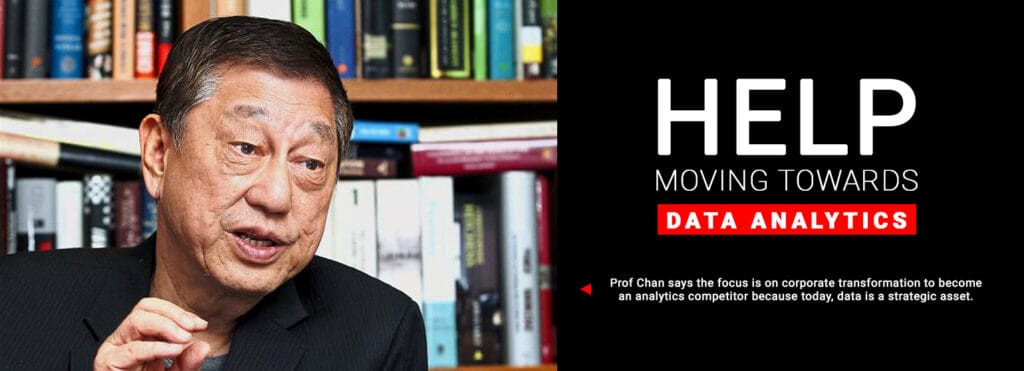
THE past year has seen an increasing number of companies leverage on data analytics for their businesses, to maximise optimum growth.
Malaysia’s big data and analytics software market is forecast to reach RM595mil by 2021, according to an International Data Corporation (IDC) Asia/Pacific (excluding Japan) (APEJ) Semi annual Business Analytics Software Tracker 2017 report.
Thus, establishing its indisputable importance across businesses today.
With this in mind, HELP University’s 21st Annual Convocation Strategy Seminar in conjunction with its 30th graduation celebration will be titled “The Analytics Organisation: Challenges and Directions”.
image: https://content.thestar.com.my/smg/settag/name=lotame/tags=
“The focus is on corporate transformation to become an analytics competitor because today, data is a strategic asset.
“Every topic that will be discussed are coherent pathways for organisational transformation, designed to help organisations understand these changes,” the vice-chancellor and president adds.
Prof Chan believes data analytics is broadly used to enlighten industries and learning institutions on the capability of artificial intelligence and deep learning in improving their productivity, shortening decision making and decreasing cost of businesses, thanks to better data.
“Increasing computing capacity and speed have revolutionised the way businesses manage its data strategy for decision making.
“With large volumes, variety and high velocity in speed of data, companies and universities can convert and diagnose these data into information and obtain an insight to make the right decisions.”
He says an understanding in each step of data analytics is vital; that is descriptive, diagnostic, predictive and prescriptive data.
Descriptive analytics is the earliest stage of data processing that involves the use of historical data to provide useful insights and prepare the data for further advanced level of analytics.
While diagnostic analytics examines past performance to determine what happened and why, predictive analytics uses data to determine the future outcome of an event.
Prescriptive data provides companies and businesses with information on how to handle possible outcomes.
“It is powerful and can be applied to many fields; and its use is unavoidable.
“It is important to build a culture of interpreting statistics and thinking of numbers among people.
“If the culture of the organisation is not an empirically driven one, it will not be able to progress,” he adds.
Seated at his desk as collections of books decorate his office, Prof Chan shares that the varsity has taken steps to transform itself into a digitalised institute.
To begin with, the varsity has made it compulsory for all its students; pre university, undergraduate and postgraduate; to learn analytics.
“We also provide more specialised advanced training for students who want to specialise in analytics.
“With this understanding, students become more knowledgeable and employable in the market.
“We have to teach them future skills because the industry and its requirements are demanding today.
“It is impossible to be competitive without having an analytics capability, mindset and competency,” he shares.
University staff are also required to be exposed to data analytics because future courses will be driven by the use of analytics; thus embedding the culture into every module across all courses.
“Having our staff trained in data analysis is our way of providing good service support to our students in the future.
“It can also be used to predict how well our students will perform in exams; many universities are working towards this.”
Furthermore, to support students who are innovating digital entrepreneurship, HELP and its partners will provide a research grant and seed money. This seed money will be from an initial RM 500,000 fund raised to promote entrepreneurship.
This shows that students are not only learning within their classrooms, but hands-on; and this will be supported by internships, he adds.
“Our academics are working with the industry to look at the application of analytics within the industry, and each faculty has industry advisory board members where practitioners will advise on curriculum development and the various modules.
“We are future oriented and anticipatory in preparing our students.
“Various new jobs will emerge from the use of big data and data analytics.
“Therefore, if our students are trained in this area, not only will they be globally mobile, but they can create new industries and become entrepreneurs,” Prof Chan shares.
He however cautions that academicians must be mindful when training students in the field, as educating them in the ethical and legal aspects is important.
Prof Chan says the one-day seminar creates a culture of sharing and envisioning the future together with various companies.
“The role of a university is to think and you think through a conference; a platform that brings creative and intellectual minds together.”
The seminar will be held on April 28 at Shangri-La Hotel, Kuala Lumpur.
For those interested in attending the seminar, e-mail dharsh.g@university.help.edu.my or call 012 287 2686.
